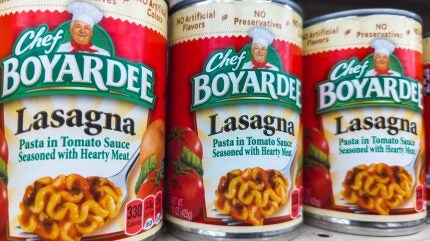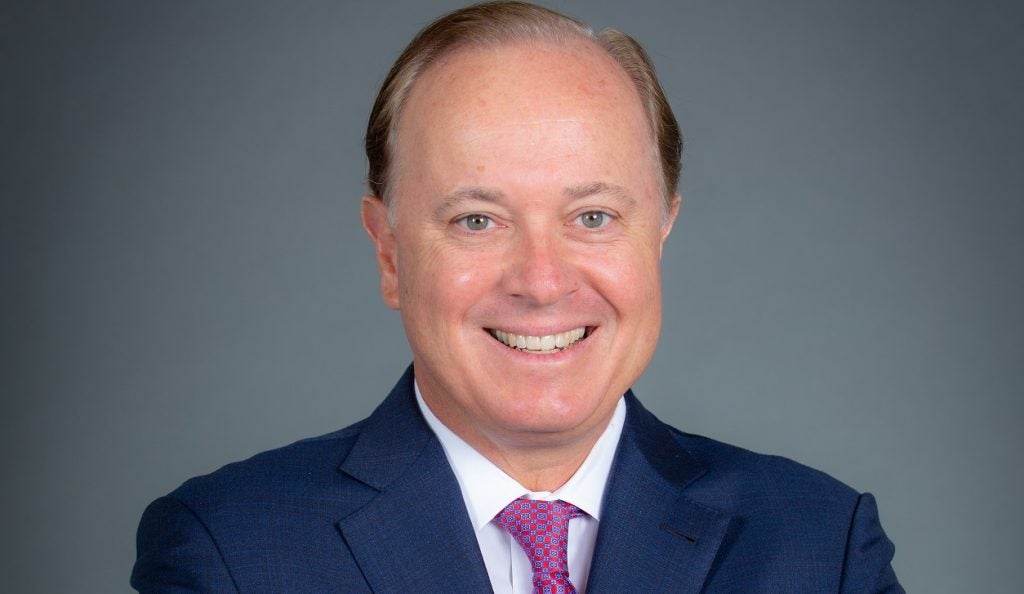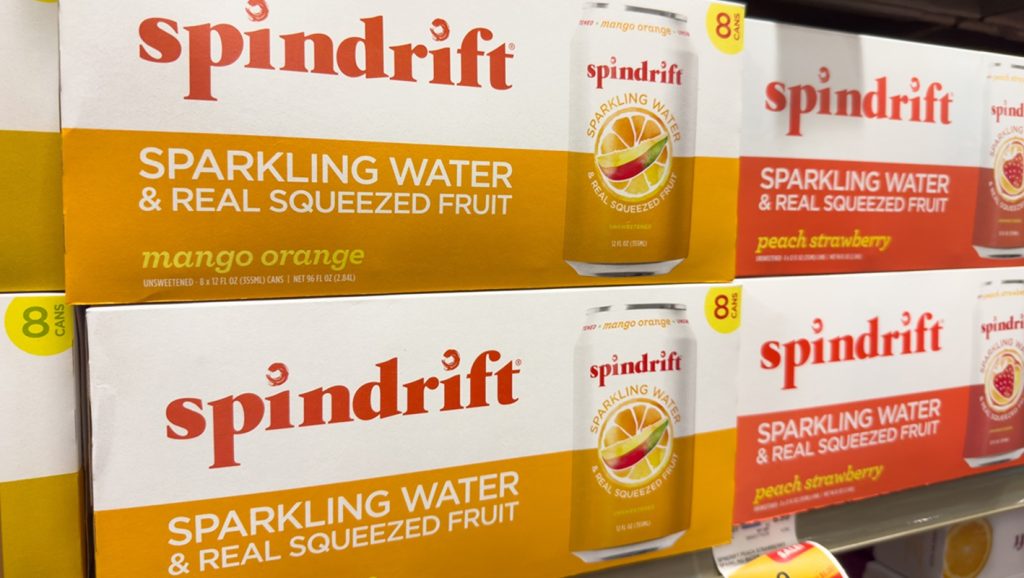
US private-equity firm Brynwood Partners has announced two significant deals in the last two months – the acquisition of pasta and Italian meals brand Chef Boyardee from Conagra Brands and the disposal of Sunny D juices maker Harvest Hill Beverage Company to Castillo Hermanos.
Brynwood Partners is the buy-out house behind US manufacturer Hometown Foods, which it founded in 2018 to buy a collection of assets from JM Smucker and has since built through M&A.

Discover B2B Marketing That Performs
Combine business intelligence and editorial excellence to reach engaged professionals across 36 leading media platforms.
Just Food caught up with Henk Hartong III, Brynwood Partners’ chairman and CEO, to discuss the two transactions, his plans for Chef Boyardee and his thoughts on the wider M&A environment.
Dean Best (DB): The $600m acquisition of Chef Boyardee from Conagra: why did Brynwood decide to strike a deal of that size?
Henk Hartong III (HH): We raised our ninth fund in 2023. That’s a $750m fund. I had been working on the divestiture of Harvest Hill, which was our biggest portfolio company and owned by Brynwood VIII, a previous fund to our current fund. We started working probably since the fall of 2024 on the divestiture of Harvest Hill. We ended up divesting in that business for over $1.4bn.
With Harvest Hill leaving, I was looking at the balance of the portfolio and thinking with Hometown Food that we wanted to have an anchor that would provide us with scale. We got the agreement of our limited partners to have an acquisition of Hometown Food, a collection of iconic American brands – Pillsbury, Hungry Jack, Martha White, De Waffelbakkers, Arrowhead Mills – into fund nine because fund eight, which was then fund seven, the owners of it were at the end of their lives. We were able to do that; we completed that transaction first, so that Hometown Foods is owned by Brynwood IX and the second leg was to get Chef Boyardee, which we were able to negotiate and secure from Conagra. Those two businesses will be merged together at the closing, which we expect will happen in early June.
DB: Reuters reported in early 2024 that Brynwood was exploring the potential sale of Hometown Food. Was there any substance to that story?
HH: That story was accurate. We did explore that. We didn’t get the outcome or offers that we were looking for and, at that point, we decided to continue to drive the performance of the business. We have a bunch of different components within that company that have had nice performance.

US Tariffs are shifting - will you react or anticipate?
Don’t let policy changes catch you off guard. Stay proactive with real-time data and expert analysis.
By GlobalDataThe nice part about the Chef Boyardee business is it’s big, it’s predominantly a US business, which suits very well our combination of assets already in Hometown Food and it’s a single manufacturing operation in central Pennsylvania. Our predominant ambient manufacturing for the current business sits in Toledo, Ohio, about 500 miles away. There’s some pretty good business synergy combinations. The moment you buy something out of a big company you end up with freight and manufacturing dis-synergies. In this case, we actually created synergies because we’re going to be able to pool our two ambient businesses of really significant scale together to ship our customers all the products on the same truck.
DB: Brynwood’s announcement said the firm is confident it can “reinvigorate” Chef Boyardee. Does that indicate the brand’s sales have been in decline?
HH: It’s not that dissimilar from Sunny D. When we bought Sunny D in 2015 for less than $200m and people said, ‘What are you doing, Henk? Its best days are behind it. The heyday was with Procter and Gamble.’ I said, ‘This business has been fundamentally under-managed. It’s a great, iconic, American brand that has lost its way.’
Our whole investment strategy is providing our operating skills and insights with the retailer and supplier and manufacturing know-how. Those connections and relationships can help us unlock value if we can get a business in our hands that we feel has the potential to respond to that level of therapy, triage and initiative. If you look at that business at the time of acquisition, it was $250m in sales and, when we closed on it yesterday, the TTM [trailing twelve months] sales were almost $550m on a business that people had started their sentence, ‘Sunny D? Oh, I used to drink that when I was a kid.’
When you ask someone about Chef Boyardee: ‘Oh, I used to eat that when I was a teenager or whatever’ but you got to get the ‘used to’ out of there. That’s going to require some work, right?
DB: How are you going to do that?
HH: We’re not going to do that by just selling the current format. It’s going to have to go into different applications in the store. We’re not going to do anything to change the existing offerings. We may look to improve them if we feel that’s the appropriate fix but the core offerings would be the core offerings. That brand is so well known. I would argue it’s better known than Sunny D. Conagra, nothing against their efforts but big companies make choices of what are core brands and, when something’s determined to be non-core and non-strategic, they manage it for cash. That means that business does not get the things it needs that respond to trends in the market. We will correct that quickly. We’ll look at the adjacencies within the category that we’re in and find ways to compete in different parts of the store.
Chef Boyardee has the legs to run. We just need to give it the resources to get there quickly.
We’re selling in the canned meals, cup meals sector but we’re not in skillet meals, for example. We should be. We’re not in shelf-stable trays. We’re not in shelf-stable cups, microwavable cups. We’re not in refrigerated, ready-to-eat, high-quality meals, which is a big segment of the store that consumers are often going to for slightly differentiated eating experiences. The foodservice business hasn’t been a priority. We think there’s a big application for foodservice. We have a long list of go-gets.
What does that take to get into those categories? Capital investment. Marketing initiatives. It takes new product, R&D work. That wasn’t getting funded by the current owner of the business not because it wasn’t a good idea but because this was not a growth brand for them and that’s what we have to change. We did the same thing with Sunny D. The brand has the legs to run. We just need to give it the resources to get there quickly.

DB: A big question: what’s your take on the regulatory landscape in the US? There’s government scrutiny on the make-up of products, of ingredients and additives. To what extent will you have to change Chef Boyardee’s product recipes? And, secondly, how is that regulatory environment shaping your broader M&A thesis? Is it changing the types of products that you look to buy?
HH: It’s a good question. We obviously were aware of what was being proposed from a regulatory perspective. We were mindful of that as we looked at this opportunity. Fortunately, the larger companies have been more proactive in terms of taking some of these voluntary initiatives to make adjustments. Whether they’re merited or not to be made, they’ve been doing them anyway. We are confident that, whatever regulations will come down, that these products are not going to have substantial, if any, modifications required. Where does this go from here, that I can’t opine on but, from what I can see in terms of legislative or regulatory requirement changes, I don’t anticipate that this is going to affect the Chef Boyardee business in any meaningful way.
The proposed regulations are banning certain ingredients that, quite frankly, I don’t think they’ve determined to be unsafe or unhealthy
The tariffs, on the other hand, are far more problematic in terms of managing rising costs in the time when we’re looking to try to control inflation and grocery prices. A lot of the initiatives are catching areas of the economy that are unintended, I think, from the administration’s application of these tariffs. They don’t intend to catch steel cans for food packaging when you’re putting these wild tariffs on steel but they are catching it because 90% of the steel tin plate that’s required to service the US manufacturing businesses is produced outside of the US at the moment.
The proposed regulations are banning certain ingredients that, quite frankly, I don’t think they’ve determined to be unsafe or unhealthy because, if they were, they would already be regulated by the FDA, and they’re not. And yet, at the same time, you can buy tobacco and alcohol, there’s plenty of other things that are known to be harmful that they’re not posing bans on, so the double standard, in my judgment, seems to be quite significant. It appears to be a political opportunity, not something that’s applied equally across all regulatory decisions that have been made, across anything that people are able to buy or consume.
Putting that aside, one benefit for someone in the M&A business is, look at the times where industry has been afflicted with a common set of problems. The four times I can remember – 9/11, the great financial crisis, coronavirus and now the current political instability – at those four moments in time, businesses were afflicted with the same set of problems and, what I found for Brynwood is, when we’re dealing with that, our opportunity to outperform the market is always better.
I compare it to duplicate bridge, I always tell our investment team. Duplicate bridge, everybody has the same cards but somebody wins. It’s the best player. In this circumstance, we’re all afflicted with the same set of problems and some people are choosing to sit out and wait for things to calm down. We’re choosing to buy. We feel that our operating skills, given the same set of cards that everyone’s dealing with, will allow us to outperform the market.
DB: Is the size of the Chef Boyardee deal something of a one-off?
HH: That’s a good question. We’re a middle-market buy-out fund, so this deal is outsized. We made a substantial commitment from fund nine, so we need to have some diversification in our portfolio. We’ll continue to look for traditional, middle-market deals. If we see an opportunity that we feel is too good to pass up, then we will go raise the required funds, or co-investment, or whatever we need to get a bigger deal done. We continue to look at both of them but I would not consider us being in a position where we’re only going to go out and do bigger deals. We wanted to do that when we raised a bigger fund but I’m not necessarily inclined to do that because I think our strategy that we’ve consistently applied for 41 years is best applied against the size of deals that we’ve typically done through our business history.

DB: What does your current pipeline look like? Are you in any live discussions in either food or drinks?
HH: Yes, we’re both looking at selling and buying opportunities right now.
DB: Do you anticipate that anything could be announced on either side by the end of the year?
HH: I hope so, both buy-side and sell-side. That’s my job.
DB: What’s your appetite for deals in beverage? What kind of drinks brands are you looking at?
HH: We’re active in the beverage space but we have a non-compete in the categories that Harvest Hill participates in, both in alcohol and in juice. That said, we’re currently in contract manufacturing through Carolina Beverage, which makes Monster and Spindrift and some of the larger seltzer and energy-drink brands, so that’s an active space that we’re still in and not actively trying to exit right now.
I would expect given the challenges of the current market you will continue to see portfolio reshaping, which will lead to further M&A activity.
DB: How would you describe the availability of assets and the deal prices being touted at the moment? Are big corporates increasingly looking to offload legacy brands they no longer desire? Is that dynamic increasing in your view?
HH: I don’t know if it’s increasing but I would consider corporate portfolio structuring and rationalisation is always something that’s happening in our business, regardless of the condition of the market. I would say, in the current market, if you just look at the public companies in the food and beverage space that have released earnings in the past six months, just look at the results: down, soft, sales are down, earnings are missing. When you’re in that position, you typically look to start a path to growth again. One of the ways to get a path to growth is to divest your non-growth, non-strategic businesses.
The question is what price can you get in this market with all this uncertainty? You may not be willing to sell a non-growth business at a price that you can get paid because it’s dilutive and there’s tax leakage. There’s a combination of factors that end up answering that question that depend on the company itself. I would expect that given the challenges of the current market that you will continue to see portfolio reshaping, which will lead to further M&A activity. The question is do those deals get done because buyers and sellers can get together on price?
DB: Put another way, are you seeing more opportunities for acquisition for Brynwood?
HH: I would say I think the market for us is better because, anytime there’s a down market, if we’re buying under-nurtured, under-managed businesses that require some form of operational involvement to accelerate the performance, that’s not a growth market. Most private-equity firms back growing businesses, growing sectors, management teams, etc. If you have a non-core brand in a down market with no management team in the corporate carve-out, well that doesn’t meet any of their requirements, so it eliminates a lot of the financial buyers from these opportunities. I think that creates more deal flow for us.
DB: Are you seeing more competition for assets among your private-equity peers?
HH: I don’t think so, not for the deals that we’re looking at. I would argue that right now a lot of private-equity folks are on the sidelines if they don’t have the ability to raise high-leverage deals, given the fact that there hasn’t been a lot of interest-rate compression that they’d hoped for. Traditional LBOs for businesses that may have some headwinds for growth and are in a general category of products that are fighting for volume typically don’t lend themselves to a low-touch, private-equity, LBO model. That lends itself to guys like us, so we need to go buy some more things.





